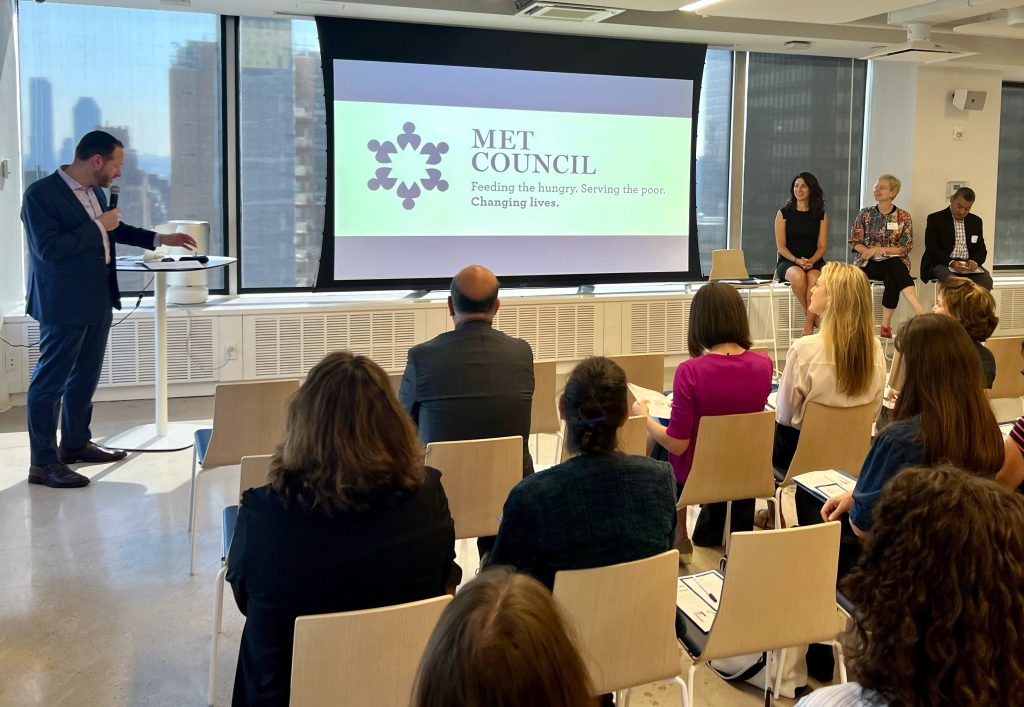grantee spotlight
Met Council Expands Efforts to Fight Food Insecurity in NYC
America’s Largest Jewish Nonprofit Dedicated to Fighting Poverty Extends Services to New York’s Muslim Community
It takes a village to address the issue of food insecurity in New York City across religious and ethnic populations.
“Here we are, an organization founded on Jewish values, speaking at an event convened by a foundation founded on Catholic values, talking about our program to better understand the Muslim community to address the issue of food insufficiency,” said David Greenfield, CEO and executive director of the Met Council, at an event hosted this week at Mother Cabrini Health Foundation headquarters in New York.
Nonprofit leaders convened to discuss “Bringing Dignity & Innovation to Emergency Food in Kosher and Halal Observant Communities.” The Met Council conducted virtual listening sessions with the Muslim community in July, and event participants this week discussed the new data and its connection to food insecurity in New York City and beyond.

The Met Council is America’s largest Jewish nonprofit organization dedicated to fighting poverty, and today operates the largest kosher food distribution program in the world. Over the past three years, the Mother Cabrini Health Foundation has supported these efforts with grants totaling nearly $2.7 million.
While the Met Council’s emergency food network serves all who are hungry, it specializes in the provision of emergency food that meets the cultural and religious dietary needs of food insecure kosher- and halal-observant households.
Three COVID emergency grants from the Mother Cabrini Health Foundation helped the Met Council launch a comprehensive effort across the city to extend its services to New York’s Muslim community. Its network now serves an average of 95 pantries a month, 20 of which are halal emergency food pantries. These pantries serve approximately 200,000 people monthly.
Based on the listening sessions and Met Council’s experience serving the Muslim community, one key group recommendation is to establish an office of kosher and halal within the U.S. Department of Agriculture to monitor programs and funding to ensure that healthy, culturally appropriate food is made available to pantries serving kosher- and halal-adherent communities.
Click here for the full report about this issue and recommendations for the future.
